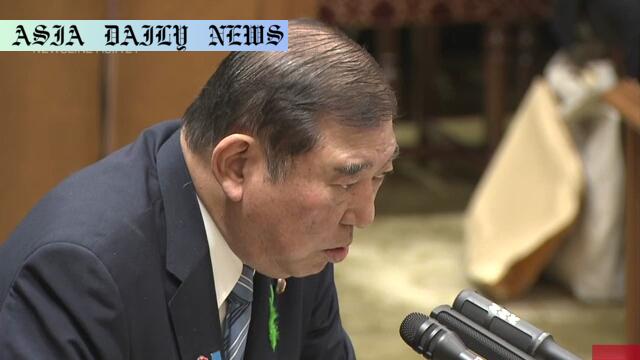Trade Talks: Trump’s attendance demonstrates his strong commitment to prioritizing US-Japan negotiations for mutual benefits.
Trump’s participation in US-Japan trade talks underscores his dedication to bilateral relations.
Prime Minister Ishiba Shigeru highlights Japan’s role as a key ally, investor, and job creator in discussions.
Defense and agriculture policies were not part of the first round, as clarified by Ishiba.
Preparatory meetings included relevant officials, ensuring comprehensive discussions.

Trump’s Active Role in Trade Talks
The involvement of US President Donald Trump in the initial stages of trade discussions with Japan signals a significant commitment from the United States to its bilateral relationship with Japan. By personally attending the first round of trade negotiations, a clear message is being sent that the US places a high priority on fostering stronger trade ties and addressing mutual economic concerns. This approach, often associated with Trump’s leadership style, underscores his hands-on role in pivotal areas of international diplomacy.
Japan’s Strategic Position in the Global Economy
Prime Minister Ishiba Shigeru, addressing this development, emphasized Japan’s critical role in the global economy, not just as an ally but as the United States’ largest foreign investor and a significant job creator. This perspective highlights the mutually beneficial aspects of these discussions, where both nations can address global economic challenges together. Ishiba reaffirmed Japan’s readiness to engage in meaningful dialogue, maintaining a forward-looking stance that incorporates collective efforts on global matters.
Questions on Senior Ministry Officials’ Absence
The absence of senior officials from Japan’s defense and agriculture ministries during the first round of talks raised questions among opposition lawmakers. Addressing these concerns, Ishiba clarified that the discussions were not designed to delve into specific policy areas like defense or agriculture. Instead, such details would be examined in later stages of negotiations. He also pointed out that relevant officials attended preparatory meetings, contributing to the overall deliberations.
The Road Ahead in US-Japan Negotiations
As both countries progress in this dialogue, the focus will likely shift to specific areas of mutual interest, ranging from tariff policies to broader economic collaborations. The foundational work established in the first round sets the stage for more detailed negotiations in upcoming sessions. With an emphasis on leadership, commitment, and strategic alignment, this phase of US-Japan relations has the potential to redefine their economic and diplomatic partnership on multiple levels.
Commentary
Trump’s Leadership in International Trade
President Donald Trump’s decision to personally attend the initial round of US-Japan trade discussions highlights his inclination towards direct involvement in key matters of international relations. It demonstrates a leadership style that prioritizes visibility and hands-on engagement, especially in areas of significant economic and geopolitical impact. This move not only reinforces the importance of the negotiations but also sends a clear signal of the US’s commitment to its partnership with Japan.
Japan’s Role as an Economic Powerhouse
From a Japanese perspective, Prime Minister Ishiba Shigeru’s statements underscore the critical role Japan plays in the global economic landscape. As a major investor and job provider in the United States, Japan leverages its economic strength not only for bilateral gain but also for global growth and stability. This dynamic relationship between the two nations is a reminder of how alliances can extend beyond defense and into areas of shared economic prosperity.
Addressing Concerns and Setting Expectations
The absence of senior officials from Japan’s defense and agriculture ministries may be a point of contention for some, but Ishiba’s clarification sheds light on the phased approach being taken. By focusing first on foundational topics before diving into sector-specific issues, both nations can ensure a more comprehensive and well-rounded dialogue. This methodical approach reflects a deeper understanding of the complexities involved in international trade negotiations.
Looking Forward: A Path of Collaboration
As the two global leaders continue their discussions, it will be critical to maintain an atmosphere of mutual respect and strategic foresight. The collaborative steps taken in this first round set a precedent for future negotiations, where both countries can aim to not only resolve disputes but also explore new opportunities for collaboration. Ultimately, these talks have the potential to strengthen the US-Japan alliance, bringing tangible benefits to both nations and fostering a spirit of global cooperation.


